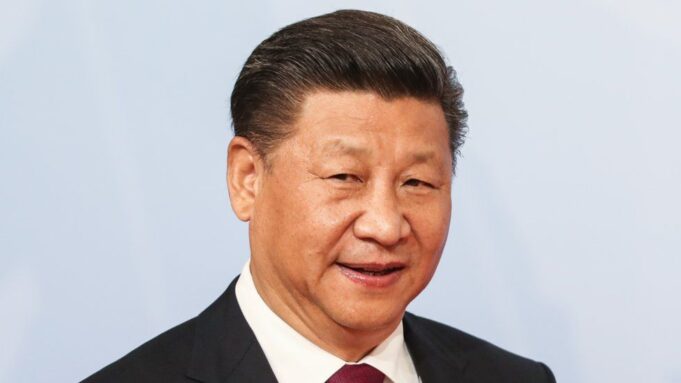Xi Jinping, on Friday, secured a precedent-breaking third term as the President of China.
Xi secured the third term during a parliamentary session in which he tightened his control of the world’s second-largest economy as it emerges from a COVID-19 slump and diplomatic challenges mount.
Nearly 3,000 members of China’s rubber-stamp parliament, the National People’s Congress (NPC), voted unanimously in the Great Hall of the People for the 69-year-old President in an election in which there was no other candidate.
Xi has taken China on a more authoritarian path since assuming control a decade ago, and he extends his tenure for another five-year term amid increasingly adversarial relations with the U.S. and its allies over Taiwan, Beijing’s backing of Russia, trade, and human rights.
Domestically, China faces a challenging recovery from three years of Xi’s zero-COVID policy, fragile confidence among consumers and businesses and weak demand for China’s exports.
READ ALSO: Chinese President XI writes Buhari, seeks to bolster relations
The economy grew just 3% last year, among its worst performances in decades. During the parliament session the government set a modest growth target for this year of just around 5%.
“In his third term, Xi Jinping will need to focus on economic revival.
“But if he continues with what he has been doing – tighter party and state control over the private sector and confrontation with the West, his prospects for success won’t be encouraging,” Willy Lam, a senior fellow at the Jamestown Foundation, a U.S. think tank, said.
Russian President, Vladimir Putin, was among the first foreign leaders to congratulate Xi on his third term.
The two sealed a “no limits” partnership between China and Russia in February last year, days before Russia launched its invasion of Ukraine.
Xi set the stage for another term when he did away with presidential term limits in 2018, and has become China’s most powerful leader since Mao Zedong, who founded the People’s Republic.
The presidency is largely ceremonial, and Xi’s main position of power was extended last October when he was reconfirmed for five more years as general secretary of the central committee of the Communist Party.
During Friday’s voting, Xi chatted with premier-in-waiting Li Qiang, who is poised to be confirmed in Saturday to China’s second-highest post, a role that puts the former Shanghai party chief and Xi ally in charge of the economy.
Other Xi-approved officials are due to be elected or appointed to government posts during this weekend, including vice premiers, a central bank governor and numerous other ministers and department heads.
The annual parliamentary session, the first since China dropped three years of COVID restrictions, will end on Monday, when Xi Jinping will give a speech that will be followed by a media question-and-answer session by Li.
During Friday’s session, Xi and dozens of other top leaders on the stage did not wear masks but everyone else in the auditorium did.
China ended its zero-COVID policy in December after highly unusual nationwide protests against the curbs that stifled daily life and the economy.
The virus, which emerged in China in late 2019, then spread rapidly to infect most of its 1.4 billion people but authorities have not released a full tally of related deaths.
According to Reuters, the parliament, on Friday, also elected Zhao Leji, 66, as parliament chair and Han Zheng, 68, as Vice President.
Both men were from Xi’s previous team of party leaders at the Politburo Standing Committee.
- IPMAN to Nigerians: We have enough fuel, avoid panic buying - December 23, 2024
- 3 Premier League talking points - December 23, 2024
- Honda, Nissan begin merger talks - December 23, 2024










